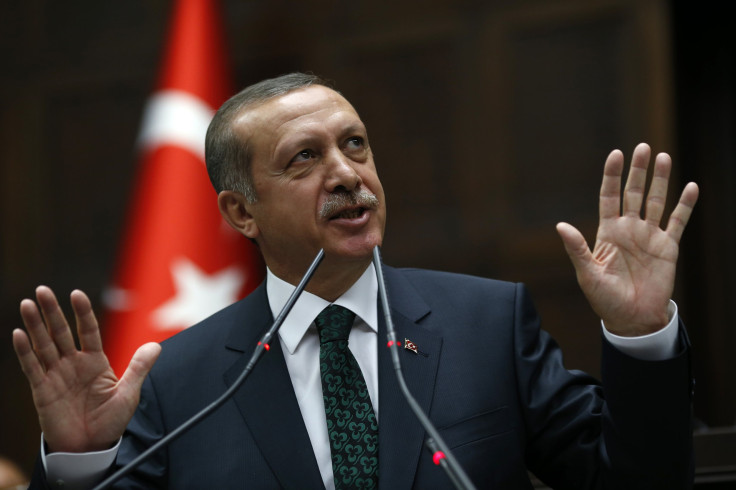Turkish Courts Return $4.5 Million In Cash Found In Shoe Boxes At Home Of Ex-Head Of Turkey's State-Owned Bank Accused Of 'Cash-For-Gold' Scheme With Iran

In a surprising decision, Turkish courts have returned the $4.5 million in cash that authorities found in shoe boxes during a Dec. 17 raid on the home of the former head of Turkey’s state-owned Halkbank, Suleyman Aslan.
Police have connected the returned cash to a larger corruption scandal that has rocked Turkish Prime Minister Tayyip Erdogan’s Islamic Justice and Development Party (AKP).
Aslan was the key player in the “gas-for-gold” scheme in which Tehran bought gold with Turkish lira and, in exchange, supplied Turkey with Iranian natural gas and oil. Western sanctions over Iran's nuclear program prevented Iran from getting paid in euros or dollars, so Halkbank used the precious metal to get around the restrictions. Aslan was detained in December and later released in February.
Coming to Aslan’s rescue was none other than Erdogan. Meanwhile, the controversial prime minister is at the center of an ongoing corruption scandal. On Monday, leaked recordings revealed two people, who are alleged to be Erdogan and his son, discussing how to get rid of large amounts of cash from their home. Erdogan said that the recordings are "immorally" fabricated and "totally unreal," as reported by the Associated Press.
Addressing lawmakers and his party, Erdogan shared the news that Aslan’s money had been returned, further deflecting any wrongdoing by him or his party. The prime minister is known for his sometimes outlandish excuses, which include conspiracy theories.
“The state has not lost a single penny,” Erdogan said regarding Aslan’s cash. “That amount was charity money.” Erdoğan was quoted by CNNTürk, according to Hurriyet Daily News. Erdogan claims the cash is not the bank’s money.
“Gas-For-Gold”
Between March 2012 and July 2013, Turkey was able to export approximately $13 billion worth of gold to Tehran, according to Mark Dubowitz of the Foundation for Defense of Democracies.
“It was puzzling that Ankara allowed this to continue: The Turks -- NATO allies who have assured Washington that they oppose Iran's military-nuclear program -- brazenly conducted these massive gold transactions even after the Obama administration tightened sanctions on Iran's precious metals trade in July 2012,” Dubowitz wrote in Foreign Policy.
The U.S. administration stiffened sanctions on Iran’s precious metals trade in 2012, but a loophole allowed Turkey to transfer gold to private Iranian citizens. In January 2013, the U.S. took action to close the financial outlet, but the Obama administration lobbied Congress to wait six months in order to protect Halkbank from being sanctioned, and become detached from the U.S. financial system. The decision effectively helped Iran acquire billions of dollars more in gold by July.
Halkbank said payments made by the bank on behalf of companies exporting gold to Iran were transparent and traceable. Rules against trading precious metals with Iran took effect on July 1, and the bank discontinued trades a month earlier.
© Copyright IBTimes 2024. All rights reserved.












